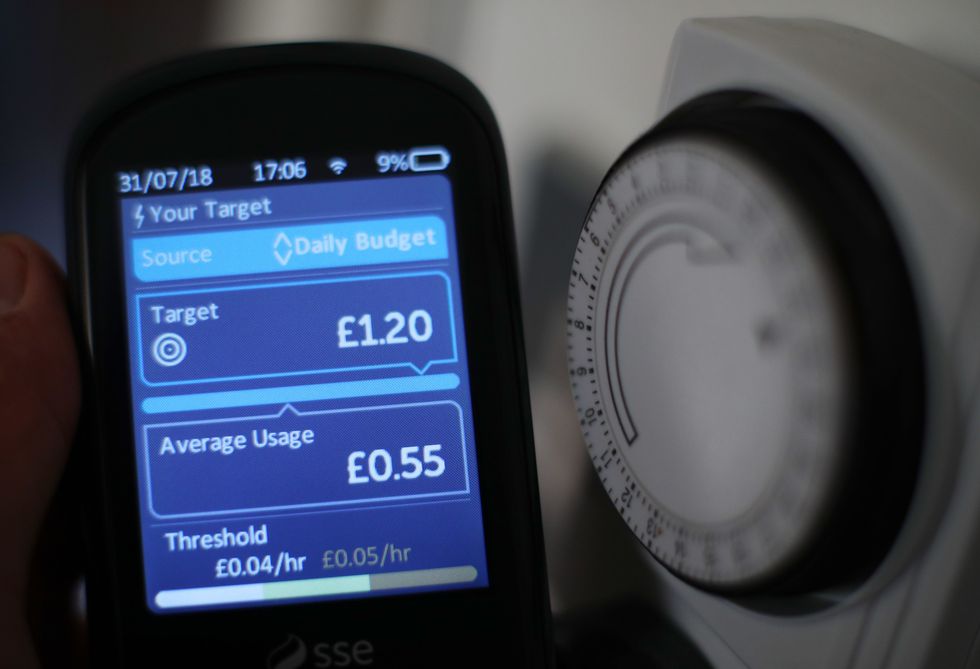Smart meter warning: Ofgem delays reforms AGAIN as thousands face incorrect bills over £1,000

The postponed changes could save British households £214 million a year
Don't Miss
Most Read
Energy regulator Ofgem has delayed crucial smart meter reforms at a time when thousands of households are receiving incorrect bills over £1,000.
The reforms, which will introduce mandatory half-hourly meter readings, have been pushed back to September 2025.
This is the fourth time the forms have been pushed back, with Citizens Advice revealing that around 25,000 worried customers who are seeking help with energy bills experienced smart meter issues.
Some customers have received shock bills exceeding £1,000 after their smart meters failed to send updates to energy suppliers, leading to dramatic underestimates of usage.
The reforms will now launch in September 2025 instead of March next year. The setback affects millions of British households already grappling with incorrect bills and non-functioning meters.
 Three million faulty smart meters have been installed in households across Britain | PA
Three million faulty smart meters have been installed in households across Britain | PAAccording to Citizens Advice, the number of customers seeking help with smart meter issues has surged - with one person contacting them every two minutes between January and October this year.
The charity reported an 83 per cent increase in smart meter-related complaints compared to 2020, before the energy crisis began.
Citizens Advice is now urging Ofgem to strengthen consumer protections by limiting back-billing to six months for households with smart meters.
The scale of smart meter problems is significant, with the Department for Energy Security and Net Zero admitting that 4.3 million smart meters are operating in 'dumb' mode, potentially leading to incorrect bills.
Martin Lewis, the money saving expert has raised further concerns in a letter to Energy Secretary Ed Miliband, suggesting that 19 per cent of smart meters are not functioning properly. Based on Lewis's figures, almost seven million of Britain's 36.2 million installed smart meters could be malfunctioning.
The delayed market-wide half-hourly settlement (MHHS) programme aims to deliver significant benefits to consumers through more flexible energy pricing.
The reforms would enable wider adoption of 'time of use' tariffs, offering cheaper rates during off-peak periods, similar to Economy 7 tariffs. Energy firms could also become more efficient by accurately predicting electricity demand at specific times.
Ofgem estimates these changes could save households up to £4.5bn by 2045, averaging £214million annually.
The regulator expressed disappointment at the delay but stated: "MHHS remains a high priority for Ofgem and Government as a means of enabling the lowest-cost decarbonisation of the energy sector."
The smart meter rollout is also behind schedule, with only 61 per cent of households currently using one, far short of the 74.5 per cent target for 2025.
Dame Clare Moriarty, chief executive of Citizens Advice, said: "When you're faced with numbers that don't add up, it can at best be confusing, and at worst ignite financial anxiety that for some can feel insurmountable."
Moriarty added: Soaring costs and historic levels of energy debt mean an unexpected or incorrect bill could be the tipping point that pushes a household's budget from tight to completely unmanageable."
She urged immediate action, stating: "Consumers simply can't afford to pick up the tab when something goes wrong.
"Ofgem must act to protect consumers by limiting back-billing and raising service standards, so people struggling with billing issues get the help they need."
A spokesperson from the Department for Energy Security and Net Zero said: "There are now 37 million smart and advanced meters in homes and small businesses across Britain, making up 65pc of all gas and electricity meters.
"These are helping to give consumers more control over their energy and save money on their bills.
The spokesperson acknowledged ongoing issues: "We know that for too many people the consumer experience has not been good enough, and the number of meters not operating in smart mode remains unacceptably high."
The Department promised action, stating: "We are working with Ofgem to address these issues and expect suppliers to resolve them at a much faster pace."










